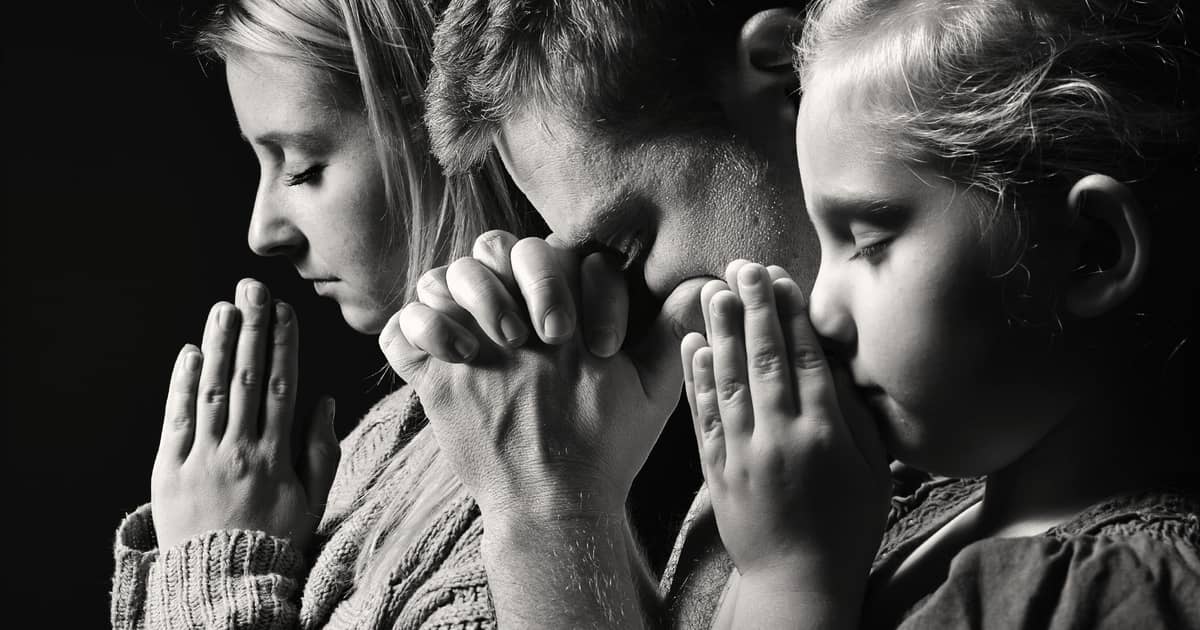Traditional Funeral Prayers
At funerals, reading a poem, a verse, or a prayer is a way to pay tribute to those who passed away. Prayers at funerals can help those without words express their feelings. Many religions often include the reading of prayers as part of their funeral rituals, and when it’s time to plan a funeral, choosing traditional funeral prayers is often part of the arrangements. The Gardens of Boca Raton funeral home has been around for many years and knows a thing or two about traditional funeral prayers.
Catholic Funeral Prayers
During catholic funerals, prayers are recited, alternating them with times of silence. Sometimes the prayers are repeated several times. The Our Father, Hail Mary, and Glory Be are common prayers recited at funerals. The Prayer for the Dead and Prayer for the Mourners are traditional to recite at funerals.
Prayer for the Dead
This prayer is often recited at funerals, in the presence of the body and the family.
In your hands, Oh Lord,
we humbly entrust our brothers and sisters.
In this life you embraced them with your tender love;
deliver them now from every evil
and bid them eternal rest.
The old order has passed away:
welcome them into paradise,
where there will be no sorrow, no weeping, no pain,
but fullness of peace and joy
with your Son and the Holy Spirit
forever and ever.
Amen.
Prayer for the Mourners
After prayers for the deceased have been recited, some Catholic funerals also recite prayers for the mourners to help them find comfort in praying.
May the love of God and the peace of the Lord Jesus Christ
bless and console us
and gently wipe every tear from our eyes:
in the name of the Father,
and of the Son, and of the Holy Spirit.
Amen.
Christian Funeral Prayers
Christian funerals also tend to include prayers as a way to help those presently grieving through praying. Prayers are also meant for the deceased to help them find light and eternal resting. Often, these prayers recite a Bible passage, followed by a few words of whoever is reciting the prayers.
No More Laboring Prayer
This is meant to symbolize the eternal resting state and the peace the deceased has found.
“And I heard a voice from heaven saying, ‘Write this: Blessed are the dead who die in the Lord from now on.’ ‘Blessed Indeed,’ says the Spirit, ‘that they may rest from their labors, for their deeds follow them!’” (Revelation 14:13).
Unexpected Loss
When death is unexpected, this prayer is used to give comfort and answers to those who question.
“Blessed be the God and Father of our Lord Jesus Christ, the Father of mercies and God of all comfort, who comforts us in all our affliction.” (2 Corinthians 1:3-4a)
Jewish Funeral Prayers
If you’ve never attended a Jewish funeral, know that they are thought as a time for mourners to come to terms with the death of a loved one, and to show honor and respect to the deceased. Specific prayers are recited at times in the weeks and months following a death.
Kel Maleh Rachamin (Prayer of Mercy)
This is a very traditional Jewish funeral prayer, which is also sung at grave visitations and anniversaries of death.
“God, full of mercy, who dwells in the heights, provide a sure rest upon the Divine Presence’s wings […] Therefore, the Master of Mercy will protect him forever, from behind the hiding of his wings, and will tie his soul with the rope of life. The Everlasting is his heritage, and he shall rest peacefully upon his lying place, and let us say:
Amen.”
The Mourner’s Kaddish
A prayer spoken in honor of the deceased to commemorate their life. This prayer is recited at the end of a minyan service, a traditional Jewish prayer service for mourners held during the Shiva.
“Magnified and sanctified be the great name of God throughout the world which He hath created according to His will. May He establish His kingdom during the days of your life and during the life of all the house of Israel, speedily, yea, soon; and say ye, Amen.”
Islamic Funeral Prayers
When someone of Islamic faith passes away, Muslims within the community often gather to offer prayers for the deceased’s forgiveness.
Salat-e-Jenaza or Namaze Jenaza
This prayer is offered in a specific way with a few Takbirs, which literally means “God is greater,” every Muslim adult male must perform the funeral prayer upon the death of any Muslim.
The prayer begins with the first takbir of Allaho Akbarby Iman.
Glory be to you Oh Allah, and praise be to You, and blessed is Your name, and exalted is Your Majesty, and there is none to be served besides You.
Then, the Iman says the second takbir of Allaho Akbar.
Oh Allah! Send grace and honor on Mohammad and on the family and true followers of Mohammad just as you sent Grace and Honor on Ibrahim and on the family and his true followers. Surely, you are praiseworthy, the Great.”
The Iman Say Allaho Akbar, is the third takbir.
Oh Allah! Forgive of us who are alive and those of who are dead; those of us who are present and those of us who are absent’ those of us who are young and those of us who are adults; our males and our females. O ‘Allah! Whomsoever You keep alive, let him live as a follower of Islam and whomsoever You cause to die, let him die as a believer.
This ends the Salat-e-Jenaza or namaze Jenaza for adults.
Hindu Funeral Prayers
At Hindu funerals, prayers are meant to celebrate the deceased and give comfort to the living. Traditional funeral prayers blend both aspects of life and often combine the recite of Hindu mantras to help those living stay conscious.
Antyesti
This traditional rite of passage, literally means “last sacrifice” and is often recited at Hindu funerals.
Burn him not up, nor quite consume him, Agni: let not his body or his skin be scattered,
O all possessing Fire, when thou hast matured him, then send him on his way unto the Fathers.
When thou hast made him ready, all possessing Fire, then do thou give him over to the Fathers,
When he attains unto the life that waits him, he shall become subject to the will of gods.
The Sun receive thine eye, the Wind thy Prana (life-principle, breathe); go, as thy merit is, to earth or heaven.
Go, if it be thy lot, unto the waters; go, make thine home in plants with all thy members.
— Rigveda 10.16



